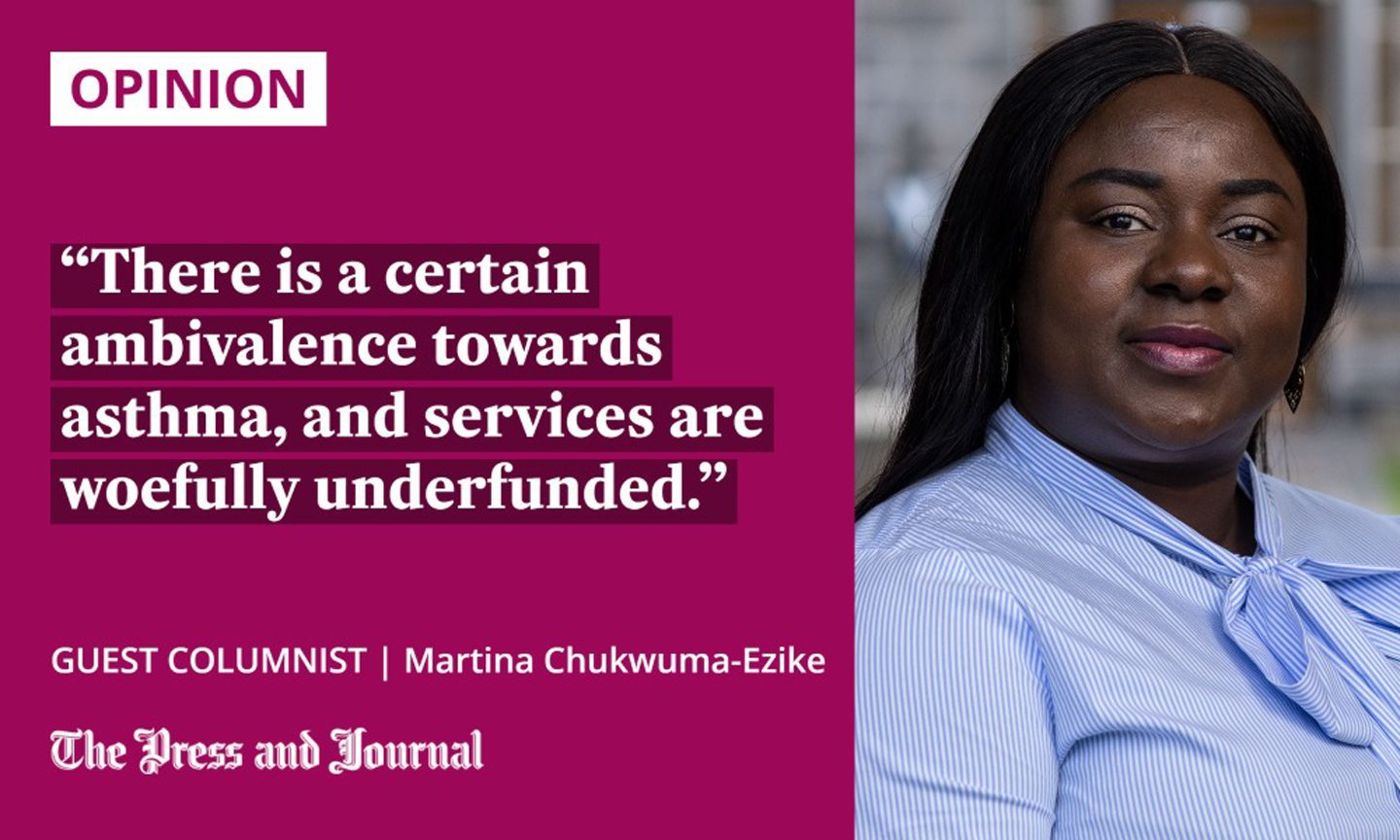Tuesday marks World Asthma Day – a chance for all of us to try and better understand the crisis facing Scotland’s 368,000 asthmatics, as a result of poor air quality, rising levels of poverty and underinvestment in health education.
The Asthma and Allergy Foundation carries out hundreds of workshops every year as part of a campaign to drive awareness. Whether someone experiencing an asthma attack lives or dies could depend on the person standing next to them. That is why investment in training is imperative.
But we wanted to do more. After collaborating with some of Britain’s leading scientists, researchers and academics, our charity developed a suite of meaningful solutions designed to make a tangible difference to the lives of asthma sufferers.
The resulting report, Fighting for Air, shows that people with asthma, especially those living in cities, are becoming increasingly isolated because of toxic air.
As someone who suffers from a severe form of asthma, I am particularly affected by this. If I walk from one end of Aberdeen’s Union Street to the other, the chances are that I will be hospitalised with an asthma attack. That means I cannot meet friends in the city centre for coffee, or even take my daughters shopping.
 Low Emission Zones and real-time monitoring of air pollution levels in city centres are crucial, and just one element of the policies we are promoting.
Low Emission Zones and real-time monitoring of air pollution levels in city centres are crucial, and just one element of the policies we are promoting.
One in four children in Scotland are living in poverty. Damp, mould and badly ventilated housing dramatically impact asthma symptoms for those living in straitened circumstances. Our policy paper also advocates prioritising social housing for those with asthma.
The document is the result of a policy process lasting several months. Policies also include an increase in the Scottish Child Payment, and an expansion of the Winter Fuel Payment for families coping with respiratory conditions. We are also calling for a nationwide rollout of asthma training in schools, workplaces and other organisations.
Another strategic insight we gleaned from our work is that sufferers feel completely unsupported. Patients complain that their uncontrolled asthma symptoms stem from a lack of understanding from those tasked with helping them.
Are you asthma aware? Someone like Eliza's life could depend on it. More than half of asthma deaths are preventable.
Be part of the solution. Book an education workshop for your organisation today by contacting info@asthmaandallergy.org.uk#asthma #asthmaawareness pic.twitter.com/sgP60yupPP
— Asthma and Allergy Foundation (@aaf_info) April 7, 2023
The Asthma and Allergy Foundation wants a commitment that all asthma patients receive face-to-face training to ensure their medicine is being taken correctly, and a yearly, in-person asthma review.
It is also vital that no medicine be switched without consultation, and no changes to prescriptions should progress until specialist training is provided.
It is time for politicians at all levels to wake up to the asthma crisis
Scotland has one of the worst problems with asthma anywhere in Europe, and I believe it is time for politicians at all levels to wake up to the crisis facing hundreds of thousands of people. I am sorry to say it, but there is a certain ambivalence towards the condition, and services are woefully underfunded.
Every life lost to asthma – of which there have been 1,162 in Scotland over the past decade – represents a huge waste of human potential, as communities and families are torn apart.
Research shows that as many as 70% of asthma deaths are preventable.
There are some very important questions which need to be answered. Of the 96 people who died from asthma in Scotland in 2021, why were almost 70% of them women? One of our partners, Professor Tim Hinks of Oxford University, is doing great research into this, but how better can we support his work?
And why are those families struggling with asthma not getting the extra support they need, whether financial or otherwise? The statistics are terrifying.
I accept that we live in an age where health services face a multitude of problems, but I feel asthma is largely ignored by those with the power to help
Of the 72,200 children in Scotland with asthma, one is admitted to hospital every 20 minutes, fighting for air. If you are living in poverty, you are three times more likely to be one of these children.
I accept that we live in an age where health services face a multitude of problems, but I feel asthma is largely ignored by those with the power to help.
We have launched this policy paper in order to empower – not only people with asthma, but the decision makers who have the ability to introduce lasting change for a constituency of people who often feel there isn’t much hope.
Martina Chukwuma-Ezike is CEO of the Asthma and Allergy Foundation, and Lord Rector of the University of Aberdeen

Conversation